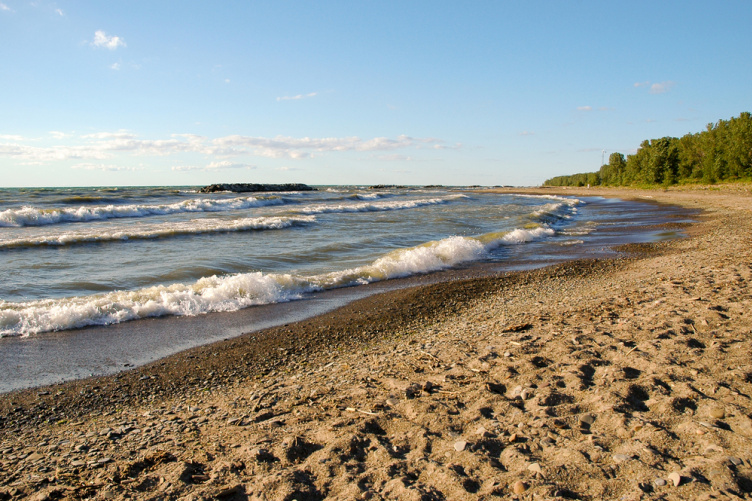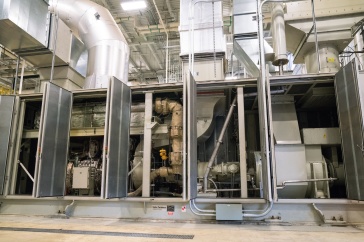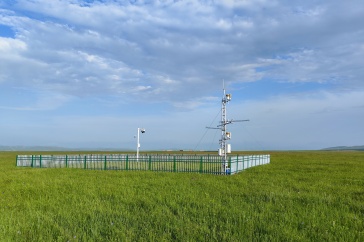
As climate change affects water quality with an increased presence of E. coli and harmful algal blooms, visitors to Lake Erie in Pennsylvania are changing the way they swim, boat and fish in its waters, new UNH research finds. Courtesy photo
Whether it’s casting a fishing line, launching a boat or taking a dip to cool off, most people heading to a lake rarely think about how climate change might affect their recreation experiences. But new research from UNH finds that as unfavorable water quality conditions in lakes continue to increase due to climate change, anglers, boaters and beachgoers are changing their behavior, switching to different locations or activities or even abandoning the experience all together.

“Some of these people are driving two to three hundred miles to take a lake vacation, only to arrive to a sign that says the beach is closed because of E. coli,” says Michael Ferguson, assistant professor of recreation management and policy and lead author of the study, published recently in the Journal of Park and Recreation Administration.
“Increasing water temperatures and fluctuating water levels, as a result of global climate change, are expected to intensify these adverse environmental conditions, and researchers and natural resource managers need to better understand how it affects the behaviors and habits of recreationists so that they can educate the public and better prepare for future conditions,” he adds.
In the study, Ferguson and his coauthors from Penn State University surveyed visitors within 13 publicly accessible coastal parks and protected areas along the 77 miles of the Pennsylvania Lake Erie coastline. The popular outdoor destination is home to a multitude of public parks and recreation facilities with beaches, fishing piers and boat launches boasting more than 4.2 million annual visitors, but as the climate changes, the area has grown increasingly vulnerable to water quality issues such as harmful algal blooms and increased presence of E. coli.
The researchers found that water-based recreationists — swimmers, anglers and boaters — who were aware of and impacted by water quality issues on any given day often altered their behaviors to cope with situations. In some cases, swimmers postponed their plunge until later in the day or anglers decided to travel further into deeper waters or headed to another inland lake. Some visitors ultimately decided to leave and were not likely to return.
“These behavioral changes could have a large impact on not only the public who are looking to enjoy the lakes but also on the towns and surrounding areas that depend on the outdoor recreation and tourism economy.”
“While this study took place in the Great Lakes, this is just a snapshot of what is happening to many similar bodies of water across the country,” Ferguson says. “This is a very real problem. From a recreational standpoint, these behavioral changes could have a large impact on not only the public who are looking to enjoy the lakes but also on the towns and surrounding areas that depend on the outdoor recreation and tourism economy.”
According to the Outdoor Industry Association, consumers spend $887 billion annually on outdoor recreation, and the industry creates 7.6 million jobs in the United States. The pervasive presence of global climate change suggests the severity of environmental conditions will likely continue to increase. The researchers say along with trying to combat these environmental changes, more effective policies and procedures are needed to better educate the public and help them, and natural resource managers, cope and adapt to a changing environment.
Co-authors on the study are Andrew Mowen, Alan Graefe and Tom Mueller, all in the department of recreation park and tourism management at Penn State.
This work was supported in part by Pennsylvania Sea Grant.
Learn more about Recreation Management and Policy at UNH.
-
Written By:
Robbin Ray ’82 | UNH Marketing | robbin.ray@unh.edu | 603-862-4864
















































